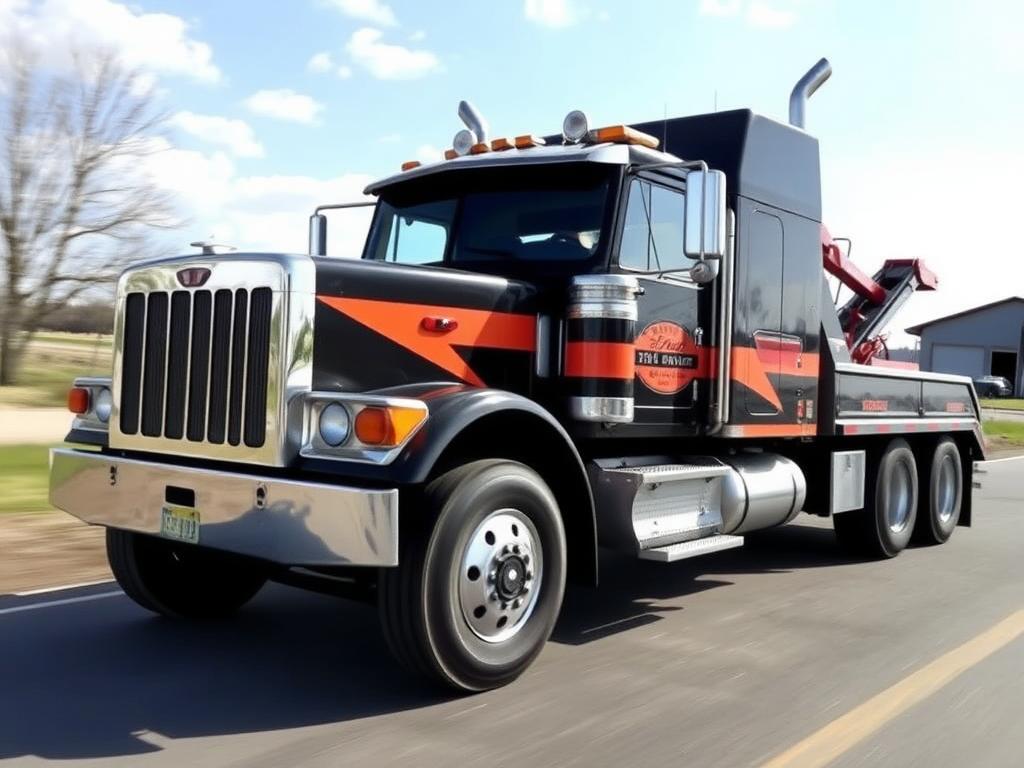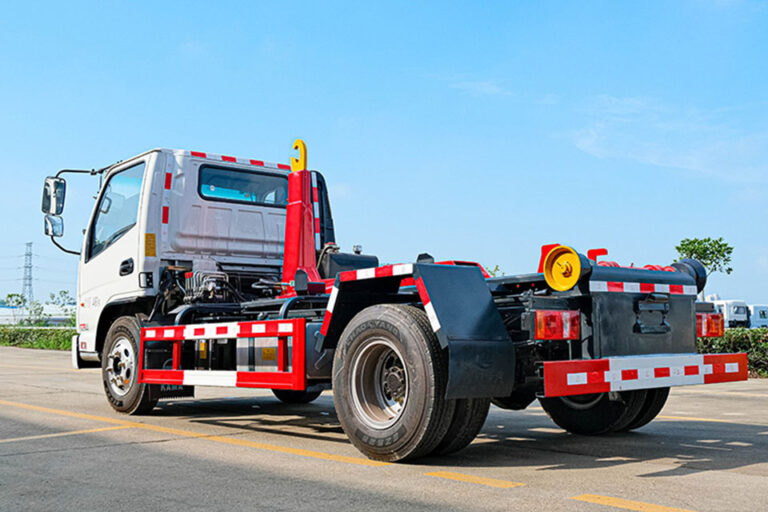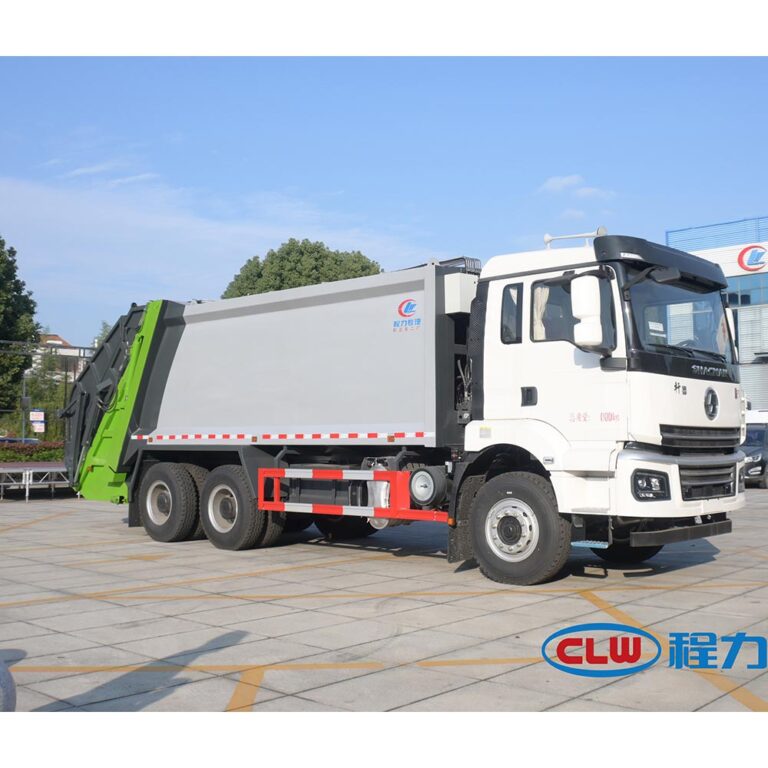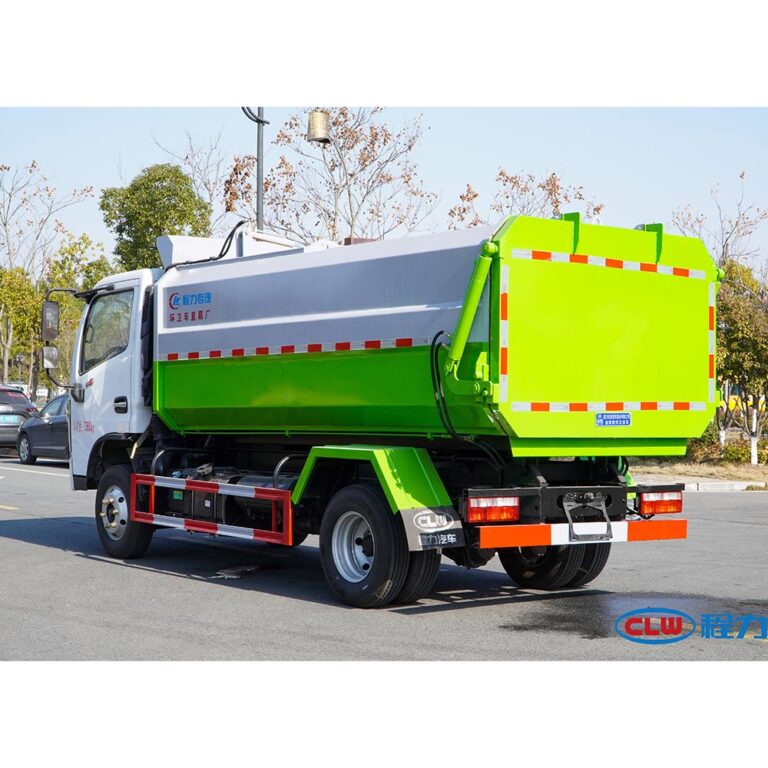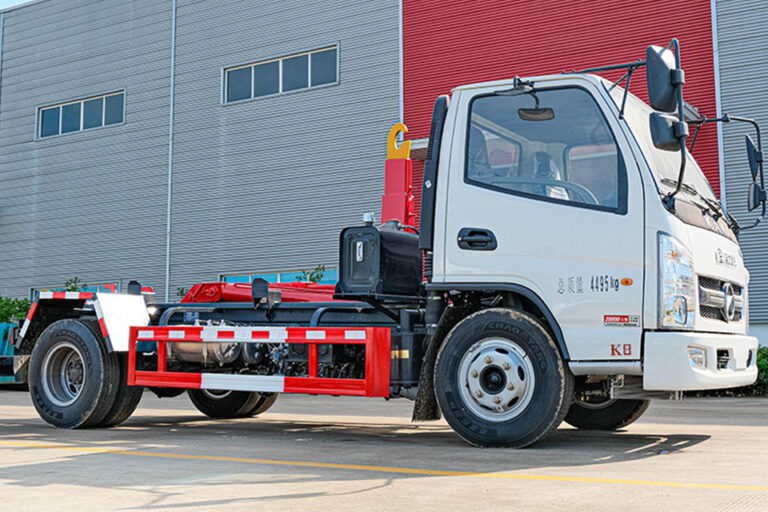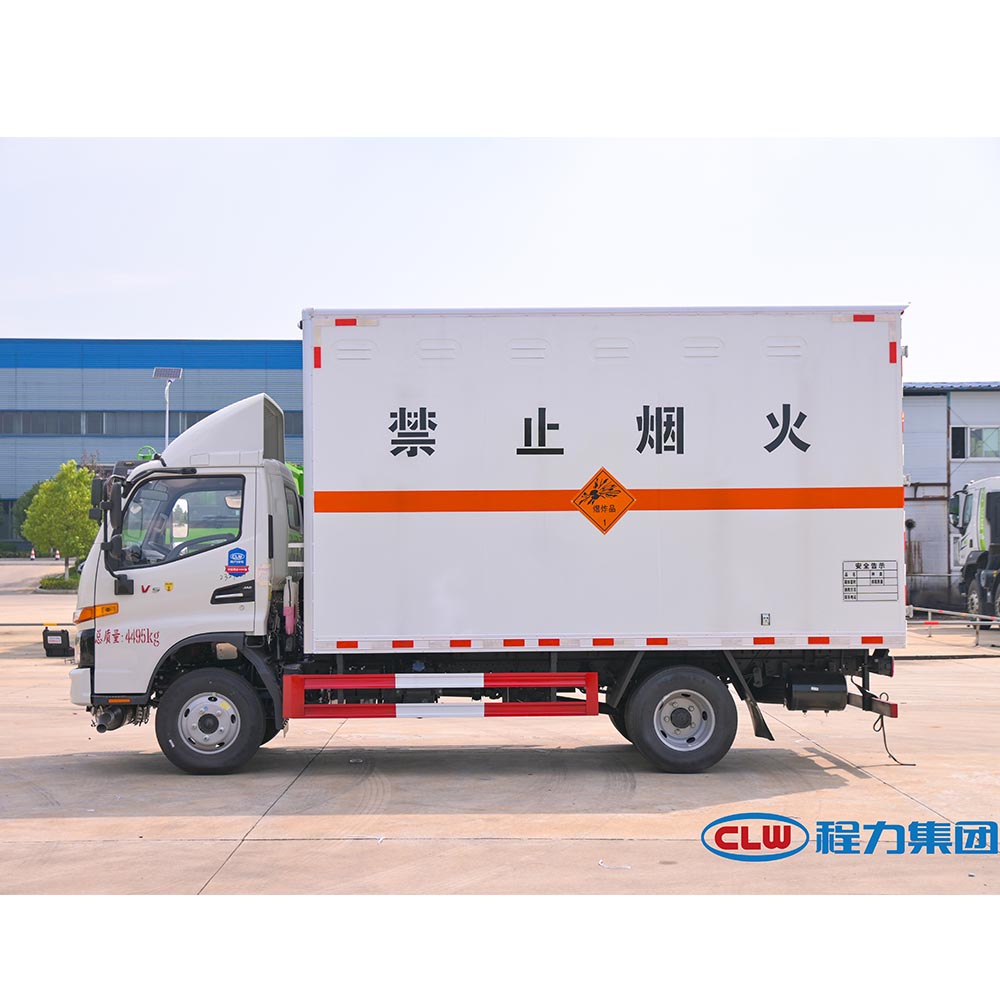
é melhor alugar ou comprar um camião comercial
Aluguer vs. Compra: Qual é a melhor opção para o seu camião comercial?
Este artigo fornece uma visão geral abrangente dos prós e contras do leasing versus a compra de um camião comercial, ajudando-o a tomar uma decisão informada que se alinhe com as suas necessidades comerciais e objectivos financeiros. Quer seja um gestor de logística, um proprietário-operador ou um proprietário de uma pequena empresa, compreender as nuances de cada opção é crucial para maximizar a sua eficiência operacional e rentabilidade.
Índice
1. Quais são as principais diferenças entre o leasing e a compra de um camião comercial?
O leasing e a compra são duas formas distintas de adquirir um camião comercial, cada uma com o seu próprio conjunto de vantagens e desvantagens. Compreender estas diferenças é essencial para tomar uma decisão que se alinhe com a sua estratégia empresarial e capacidades financeiras.
Aluguer de um camião é semelhante ao aluguer. O utilizador paga pagamentos mensais para utilizar o camião durante um determinado período, normalmente de dois a cinco anos. No final do período de prazo de aluguer, é possível devolver o camiãoprolongar o aluguer ou, por vezes, ter a opção de comprar o camião a um preço pré-determinado. Empresas de leasing muitas vezes lidam com manutenção e reparaçãoque pode simplificar as operações das empresas. Por exemplo, muitos dos nossos clientes da Vant Truck Manufacturing Plants consideram que o aluguer de uma Camião de reabastecimento de aço-carbono de alta capacidade proporciona a flexibilidade de que necessitam sem o ónus da propriedade.
Comprar um camiãoPor outro lado, a compra do veículo é feita diretamente ou através de financiamento. Após o pagamento do empréstimo, o proprietário do veículo camião definitivo. Esta opção oferece um valor a longo prazo e a liberdade de personalizar o veículo para satisfazer necessidades comerciais específicas. Proprietários-operadores muitas vezes preferem comprar, porque isso permite um maior controlo e um potencial capital próprio no veículo.
2. Quais são os prós do aluguer de um camião comercial?
Aluguer de um camião comercial oferece várias vantagens que podem ser particularmente atractivas para certas empresas, especialmente as que se dedicam à preservação fluxo de caixa e minimizando custos iniciais. Eis algumas das principais vantagens:
- Pagamentos mensais mais baixos: Pagamentos de locação são normalmente mais baixos do que os pagamentos de empréstimos para a compra do mesmo camião. Este facto pode libertar capital para outras investimentos empresariais.
- Custos iniciais reduzidos: Leasing requer normalmente menos capital inicial do que a compra. Muitas vezes, só é necessário cobrir o primeiro mês de pagamento e um depósito de segurança, em vez de uma entrada substancial.
- Acesso a modelos mais recentes: O leasing permite empresas para explorar o últimos modelos de camiões equipados com tecnologia avançada e maior eficiência de combustível. Isto pode melhorar o desempenho operacional e reduzir os custos de funcionamento.
- Manutenção simplificada: Muitos contratos de aluguer incluir manutenção e reparação serviços, libertando a empresa dessas responsabilidades. Aluguer de serviço completo podem ser particularmente vantajosas para as empresas que não dispõem de capacidades de manutenção internas.
- Benefícios fiscais: Em muitos casos, pagamentos de aluguer pode ser totalmente deduzido como despesas comerciais, proporcionando vantagens fiscais significativas.
O leasing permite flexibilidade e pode ser uma forma estratégica de gerir recursos. Por exemplo, uma empresa de logística pode optar por aluguer de um semirreboque para lidar com aumentos sazonais na procura sem se comprometer com uma compra a longo prazo. Na Vant Truck Manufacturing Plants, oferecemos aluguer soluções, tais como as do Caminhão de reabastecimento Furika Tanque de combustível de 8,5m³, motor de 170HPque respondem às necessidades específicas dos nossos clientes.
3. Quais são as desvantagens do aluguer de um camião comercial?
Enquanto aluguer tem muitas vantagens, mas também tem alguns inconvenientes que as empresas devem ter em conta.
- Sem capital próprio: Quando arrendamento, tu não é o dono do camião. Isto significa que não constrói capital próprio ao longo do prazo de aluguere, no final do contrato de arrendamento, não tem nenhum bem para mostrar em troca dos seus pagamentos.
- Restrições de quilometragem: Contratos de arrendamento incluem frequentemente quilometragem limites. A ultrapassagem destes limites pode resultar em penalizações pesadas no final do contrato de aluguer.
- Limitações de personalização: Leasing normalmente restringe a capacidade de personalizar a camião. Quaisquer alterações devem ser aprovadas pelo empresa de leasing e podem ter de ser removidos antes da devolução do veículo.
- Potencial para custos ocultos: Arrendamento Os contratos podem incluir várias taxas e encargos, tais como taxas de rescisão antecipada ou taxas de desgaste. É crucial compreender todos os termos do contrato contrato de aluguer.
- Custo a longo prazo: Durante um período prolongado, aluguer pode ser mais caro do que comprar. O valor acumulado pagamentos de aluguer pode exceder o custo total de propriedade associados à aquisição e manutenção de um camião.
Contras do aluguer de um semirreboque Os problemas mais comuns são a falta de propriedade e as potenciais restrições. Por exemplo, uma empresa de correio pode considerar que a quilometragem as restrições e limitações à personalização dificultam as suas necessidades operacionais.
4. Quais são os prós da compra de um camião comercial?
Comprar um camião comercial oferece várias vantagens a longo prazo, especialmente para as empresas que dão prioridade à propriedade e à personalização.
- Propriedade e capital próprio: Quando comprar um camiãoO empréstimo é um empréstimo de capital, que permite acumular capital com cada pagamento. Quando o empréstimo é pago, o proprietário camião livre e desimpedido, constituindo um ativo valioso para a sua empresa.
- Sem restrições de quilometragem: Diferente aluguer, comprar um camião significa que não tem quilometragem restrições. É possível utilizar o camião tanto quanto necessário sem incorrer em taxas adicionais.
- Liberdade de personalização: Possuir um camião permite-lhe personalizar para satisfazer as necessidades específicas da sua empresa. Isto pode incluir modificações para melhorar a eficiência, a segurança ou o conforto.
- Benefícios fiscais: Enquanto pagamentos de aluguer são dedutíveis, comprar um camião permite-lhe depreciar o ativo ao longo do tempo, proporcionando vantagens fiscais substanciais. Além disso, pode beneficiar de outros incentivos fiscais relacionados com a aquisição de veículos comerciais.
- Valor a longo prazo: Com o tempo, comprar um camião pode ser mais económico do que aluguer. Elimina-se a pagamentos de aluguer após o pagamento do empréstimo, reduzindo as despesas a longo prazo.
Prós e contras da compra a camião comercial realçar os benefícios da propriedade e as vantagens financeiras a longo prazo. Por exemplo, uma empresa de construção pode preferir comprar um camião para ter a flexibilidade de o modificar em função das necessidades específicas do trabalho e evitar quilometragem restrições.
5. Quais são os contras de comprar um camião comercial?
Apesar das vantagens, comprar um camião comercial também tem os seus inconvenientes.
- Custos iniciais elevados: Comprar um camião normalmente requer um pagamento inicial significativo e custos iniciais mais elevados em comparação com aluguer. Esta situação pode afetar a capacidade de uma empresa fluxo de caixaespecialmente para empresas em fase de arranque ou pequenas empresas.
- Depreciação: CamiõesO veículo, como todos os veículos, desvaloriza-se com o tempo. O valor do camião diminuirá, o que pode afetar o seu valor de revenda.
- Custos de manutenção e reparação: Como proprietário, é responsável por todas as manutenção e reparação custos. Estes podem ser imprevisíveis e potencialmente elevados, especialmente para os mais velhos camiões.
- Desafios de financiamento: Garantir o financiamento de um camião A compra de um empréstimo pode ser um desafio, especialmente para as empresas com um historial de crédito limitado. As taxas de juro dos empréstimos também podem aumentar o custo global.
- Obsolescência tecnológica: Possuir um camião durante um longo período de tempo significa que pode perder modelos mais recentes com tecnologia avançada e maior eficiência de combustível.
Comprar um camião implica um investimento inicial substancial e um investimento contínuo custos de manutenção. Por exemplo, uma empresa de entrega de alimentos pode ter dificuldades com a custos iniciais elevados e em curso reparação e manutenção despesas associadas a propriedade de camiões.
6. Como é que a quilometragem afecta a sua decisão de alugar ou comprar?
Quilometragem é um fator crítico para decidir se aluguer ou compra a camião comercial. Contratos de arrendamento normalmente vêm com quilometragem restrições, o que pode constituir uma limitação significativa para as empresas que exigem uma condução extensiva.
Leasing é muitas vezes mais adequado para empresas com uma atividade previsível e limitada quilometragem necessidades. Por exemplo, um serviço de entregas local que opere numa área geográfica específica pode constatar que aluguer satisfaz as suas necessidades sem ultrapassar quilometragem limites. As empresas de leasing frequentemente definir quilometragem e a sua ultrapassagem pode resultar em penalizações substanciais no final do prazo de aluguer.
Por outro lado, comprar um camião é geralmente uma melhor opção para as empresas que prevêem um elevado quilometragem utilização. Proprietários-operadores e as empresas de camionagem de longo curso cobrem frequentemente grandes distâncias, tornando quilometragem restrições impraticáveis. Possuir um camião proporciona a liberdade de conduzir tanto quanto necessário sem se preocupar com taxas adicionais.
Eis um quadro comparativo simples para ilustrar como quilometragem pode influenciar a sua decisão:
| Necessidades de quilometragem | Arrendamento | Comprar |
| Baixo a moderado | Adequado, dentro dos limites de quilometragem | Menos rentável, mas sem restrições |
| Elevado | Não é o ideal, risco de sanções | Ideal, sem limites de quilometragem |
| Previsível | Adequado, mais fácil de gerir a quilometragem | Menos crítico, a quilometragem não é uma preocupação |
| Imprevisível | Arriscado, difícil de manter dentro dos limites | Mais flexível, sem preocupações com a quilometragem |
7. Quais são as considerações em matéria de manutenção e reparação no leasing ou na compra?
Manutenção e reparação são aspectos importantes da camião operação, e as responsabilidades diferem entre aluguer e propriedade.
Aluguer de um camião inclui frequentemente manutenção e reparação serviços no âmbito do contrato de aluguer. Muitas empresas de leasing oferta aluguer de serviços completos opções, que abrangem a rotina manutençãoreparações e até assistência na estrada. Esta pode ser uma grande vantagem para as empresas que não dispõem dos recursos ou da experiência necessários para gerir manutenção de camiões interno. Por exemplo, uma empresa de catering pode beneficiar de um aluguer de serviços completos que assegura a sua entrega camião está sempre em óptimas condições, sem o incómodo da programação manutenção.
Comprar um camião significa que o utilizador é totalmente responsável por todas as manutenção e reparação custos. Embora isto proporcione um maior controlo sobre manutenção prazos e qualidade, exige também um planeamento e um orçamento cuidadosos. Proprietários-operadores e empresas com manutenção as equipas podem preferir este controlo, uma vez que podem assegurar a sua camião é mantido de acordo com as suas normas.
Eis um resumo de manutenção e reparação considerações:
- Aluguer:
- Frequentemente incluído no contrato de aluguer
- Aluguer de serviço completo opções disponíveis
- Reduz a carga operacional
- Previsível custos de manutenção
- Comprar:
- Responsabilidade do proprietário
- Maior controlo sobre manutenção qualidade
- Imprevisível custos de reparação
- Requer orçamentação para manutenção
8. Como é que os custos iniciais se comparam entre o leasing e a compra?
Custos iniciais são uma consideração crucial ao escolher entre aluguer e comprar um camião comercial. Leasing normalmente envolve pagamento mensal mais baixo e menos despesas iniciais em comparação com a compra.
Aluguer de um camião comercial geralmente exige apenas o pagamento do primeiro mês, um depósito de segurança e, por vezes, uma pequena taxa de aquisição. Isto faz com que aluguer uma opção atractiva para as empresas que pretendem conservar capital. Por exemplo, uma empresa em fase de arranque pode optar por arrendamento para minimizar o investimento inicial e afetar fundos a outras áreas críticas da empresa.
Comprar um camiãoPor outro lado, é frequentemente exigido um adiantamento substancial, que pode ir de 10% a 20% do do camião preço. Além disso, podem existir outros custos iniciais, como o imposto sobre as vendas, as taxas de registo e os prémios de seguro. Embora a compra proporcione valor a longo prazo, o custos iniciais elevados pode ser um obstáculo para algumas empresas.
Aqui está uma comparação de custos iniciais:
| Componente de custo | Arrendamento | Comprar |
| Adiantamento | Normalmente nenhum ou muito baixo | 10% a 20% do preço do camião |
| Pagamento do primeiro mês | Necessário | Não aplicável |
| Depósito de segurança | Normalmente um mês de pagamento | Não é necessário |
| Taxa de aquisição | Por vezes é cobrada uma pequena taxa | Não aplicável |
| Imposto sobre vendas | Pago em cada pagamento de aluguer | Pagamento antecipado do preço total de compra |
| Taxas de registo | Incluído nos pagamentos da locação ou pago separadamente | Pagamento adiantado |
| Prémios de seguro | Pode ser incluído nos pagamentos da locação ou pago separadamente | Pagamento adiantado e anual |
9. Quais são as implicações financeiras a longo prazo do leasing versus a compra?
Compreender as implicações financeiras a longo prazo é essencial para tomar a decisão de decisão de aluguer vs comprar um camião comercial. Leasing podem proporcionar um alívio financeiro a curto prazo, mas a compra oferece frequentemente um melhor valor a longo prazo.
Leasing envolve um processo contínuo pagamentos mensais em todo o prazo de aluguer. Embora estes pagamentos sejam normalmente mais baixos do que os do empréstimo, continuam indefinidamente se optar por arrendamento múltiplo camiões ao longo do tempo. Além disso, aluguer não constrói capital próprio, o que significa que não tem nenhum ativo para mostrar como resultado dos seus pagamentos no final do prazo de aluguer. Por exemplo, aluguer de um camião durante cinco anos pode parecer rentável inicialmente, mas ao longo de dez anos, o custo acumulado de pagamentos de aluguer poderia exceder o custo de comprar e possuir um camião.
Comprar um camião implica custos iniciais mais elevados e maiores pagamentos mensais se for financiado, mas uma vez liquidado o empréstimo, é proprietário do camião. Esta propriedade proporciona um ativo valioso que pode ser vendido ou trocado, potencialmente recuperando algum do seu investimento inicial. Além disso, possuir um camião elimina os pagamentos contínuos, reduzindo as despesas a longo prazo.
Eis um resumo das implicações financeiras a longo prazo:
- Aluguer:
- Contínuo pagamentos mensais
- Não há participação no capital ou na propriedade de activos
- Potencial para custos globais mais elevados ao longo do tempo
- Custos ocultos tais como taxas de rescisão antecipada ou taxas de desgaste excessivo
- Comprar:
- Os preços iniciais e pagamentos mensais
- Cria equidade e propriedade
- Potencial para custos globais mais baixos a longo prazo
- Amortizações e custos de manutenção a considerar
10. Como é que as fábricas de camiões Vant o podem ajudar a fazer a escolha certa?
Na Vant Truck Manufacturing Plants, compreendemos que escolher entre aluguer e propriedade a camião comercial é uma decisão importante para a sua empresa. Como fornecedor líder de veículo comercial soluções, oferecemos uma vasta gama de camiões concebido para satisfazer as diversas necessidades dos nossos clientes-alvo, incluindo empresas de logística, serviços de correio, empresas de construção, etc.
A nossa equipa experiente pode ajudá-lo a avaliar os prós e contras de cada opção com base nas suas circunstâncias específicas. Quer necessite de uma Caminhão tanque de areia de fraturamento Capacidade de 31.000 KG, um versátil Camião de transporte de óleo comestível, ou um Camião de transporte de material explosivotemos a solução certa para si.
Prestamos um apoio abrangente durante todo o processo de tomada de decisão, oferecendo informações sobre factores a considerar, tais como quilometragem, manutenção, custos iniciaise as implicações financeiras a longo prazo. A nossa empresas de leasing oferecer flexibilidade contratos de aluguer com condições competitivas, enquanto as nossas opções de financiamento tornam a compra de um camião mais acessível.
Eis como o podemos ajudar:
- Consultas personalizadas: Os nossos especialistas avaliarão as necessidades da sua empresa e recomendarão a melhor camião e opção de financiamento para si.
- Opções de aluguer flexíveis: Oferecemos serviços personalizáveis arrendamento planos, incluindo aluguer de serviços completos acordos que abrangem manutenção e reparação. Por exemplo, o nosso Caminhão de óleo de liga de alumínio 25.5m³ podem ser alugados com pacotes de manutenção completos.
- Financiamento competitivo: Oferecemos opções de financiamento atractivas para o ajudar a comprar o camião que precisa sem sobrecarregar o seu fluxo de caixa.
- Apoio contínuo: O nosso compromisso com a satisfação do cliente estende-se para além da venda inicial ou arrendamento. Oferecemos apoio contínuo e manutenção serviços para manter o seu camião funcionando sem problemas.
Ao estabelecer uma parceria com a Vant Truck Manufacturing Plants, pode tomar uma decisão informada que se alinha com os seus objectivos comerciais e garante o sucesso a longo prazo. Quer opte por aluguer ou compraEstamos aqui para o apoiar em todas as fases do processo.

FAQs
1. Quais são as principais vantagens do aluguer de um camião comercial?
O aluguer de um camião comercial oferece várias vantagens, incluindo pagamentos mensais mais baixos, custos iniciais reduzidos, acesso a modelos mais recentes e manutenção simplificada. É uma óptima opção para as empresas que procuram conservar capital e evitar as responsabilidades da propriedade.
2. Como é que a quilometragem afecta a decisão de alugar ou comprar um camião?
A quilometragem é um fator crucial. O leasing tem normalmente restrições de quilometragem, o que o torna adequado para empresas com necessidades de quilometragem previsíveis e limitadas. A compra de um camião é melhor para uma utilização com elevada quilometragem, uma vez que não existem restrições.
3. Quais são as responsabilidades de manutenção quando se aluga ou compra um camião?
O leasing inclui frequentemente serviços de manutenção e reparação como parte do contrato de aluguer, oferecendo por vezes até um serviço completo de aluguer. Ao comprar, o proprietário é totalmente responsável por todos os custos de manutenção e reparação, embora isto ofereça um maior controlo sobre a qualidade da manutenção.
4. É melhor alugar ou comprar um camião comercial para uma empresa em fase de arranque?
Para uma empresa em fase de arranque, o aluguer pode ser mais vantajoso devido aos custos iniciais mais baixos e à capacidade de conservar capital. No entanto, a situação financeira e as necessidades de cada empresa são únicas, pelo que é importante avaliar cuidadosamente ambas as opções.
5. O que devo ter em conta ao analisar um contrato de aluguer de um camião comercial?
Ao analisar um contrato de aluguer, preste muita atenção ao prazo do aluguer, ao pagamento mensal, às restrições de quilometragem, às responsabilidades de manutenção e a quaisquer taxas ou penalizações potenciais, como a rescisão antecipada ou taxas de desgaste excessivo.
6. Como é que a Vant Truck Manufacturing Plants pode apoiar a minha decisão de alugar ou comprar um camião comercial?
A Vant Truck Manufacturing Plants oferece consultas personalizadas, opções de leasing flexíveis, financiamento competitivo e apoio contínuo para o ajudar a tomar uma decisão informada que se alinhe com os seus objectivos comerciais. Fornecemos uma gama de camiões e soluções personalizadas para satisfazer as suas necessidades específicas.
Conclusão
Eis os aspectos mais importantes a ter em conta ao decidir se quer aluguer ou compra a camião comercial:
- Leasing oferece menos pagamentos mensais e reduzido custos iniciais, o que o torna ideal para a conservação de capital.
- Comprar a camião proporciona propriedade, equidade e não quilometragem restrições, oferecendo um valor a longo prazo.
- Quilometragem é um fator crítico; aluguer fatos baixos a moderados, previsíveis quilometragemenquanto que a compra é melhor para os produtos de alta quilometragem.
- Manutenção e reparação as responsabilidades são diferentes; aluguer inclui frequentemente estes serviços, ao passo que a compra exige que o proprietário os administre.
- Custos iniciais são geralmente mais baixos com aluguermas a compra pode ser mais económica a longo prazo.
- As implicações financeiras a longo prazo variam; aluguer implica pagamentos contínuos sem capital próprio, ao passo que a compra aumenta a propriedade e pode reduzir os custos globais.
- A parceria com a Vant Truck Manufacturing Plants pode ajudá-lo a tomar uma decisão informada e adaptada às suas necessidades comerciais, com apoio durante todo o processo.
Contacte-nos hoje para explorar as suas opções e encontrar a solução perfeita para si. camião comercial solução para a sua empresa.
